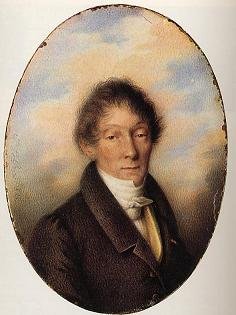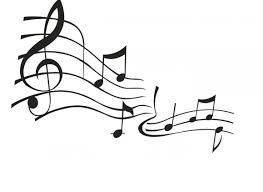The Joy of Classics (27)
Good morning dear Steemians!
Maybe Beethoven is the greatest composer of all time.
He composed all kind of works, like this miniature "Russian Folk Song", op.107 No. 3, from 10 Themes and Variations for Piano and Flute or Violin, also called "Air de la Petite Russie".
The questions is the following: Is it really a folk song inspired in Russia, or just a little piece composed or inspired at any Park in Vienna while he was staring to any child playing with a toy?
Ok, I have investigated a little bit.
Ludwig van Beethoven worked with a string quartet in Vienna, who was also his financial source. The second violin of this quartet was a Russian Diplomatic, who created this ensemble and generously financed Beethoven. His name was Andréi Razumovski and he sponsored Beethoven during several years.

(Photo): All public domain via Wikipedia
He ordered the master to create works for a large salary. The composer created the so-called 'Russian quartets' where he used the Russian melodies.
Then, we could say that, although Beethoven, as far as we know, was never in Russia, he knew popular Russian melodies through Mr. Razumovski:
-Good morning Herr Razumovski
-Good morning Herr Beethoven
-Yesterday I think you sang a very beautiful melody while you were tuning your violin up.
-Oh Yes, I sang it during my childhood.
-¿Could you sing it again for me please? But louder please, here direct to my ear trumpet...
.jpg)
La Alegría de los Clásicos (27)
Buenos días queridos Steemians!
Quizás Beethoven es el más grande compositor de todos los tiempos.
Compuso toda clase de obras, como esta miniatura "Canción Popular Rusa", op.107 nº 3, perteneciente a los 10 Temas y Variaciones para piano y flauta o violín, también denominado "Aire de la pequeña Rusia".
La cuestión es la siguiente: ¿Es realmente una pieza popular inspirada en Rusia, o tan sólo una pequeña pieza compuesta o inspirada en algún parque de Viena mientras se fijaba en algún niño jugando a algo?
Ok, he investigado un poco.
Ludwig van Beethoven trabajó con un cuarteto de cuerdas en Viena, que también era su fuente de financiación. El segundo violín era un diplomático ruso, que creó este conjunto musical, y que generosamente financiaba a Beethoven.
Su nombre era Andréi Razumovski y patrocinó a Beethoven durante varios años.
Encomendó al maestro la composición de varias obras musicales por un gran salario. El compositor creó así los renombrados "Cuartetos Rusos", donde utiliza melodías rusas.
Entonces podríamos decir que, aunque Beethoven que sepamos nunca estuvo en Rusia, sí conocía melodías populares rusas a través del Sr. Razumovski:
-Buenos días Señor Razumovski
-Buenos días Señor Beethoven
-Ayer creó que usted cantó una melodía muy bonita mientras estaba afinando su violín
-¡Ah Sí! La canté durante mi infancia.
-¿Podría cantarla otra vez para mí por favor? Pero más fuerte, por favor, aquí directamente dentro de mi trompetilla....
@titin
Hi @titin,
I thought your exploration of the history behind @beethoven's Russian Folk Song was interesting, and I enjoyed the piano performance. I think your theory about @beethoven's exposure to Russian folk music through violinist, Andréi Razumovski, makes sense. Thank you for the post!
We have shared this post on the Steemit's Best Classical Music Facebook page and in our latest post, Steemit's Best Classical Music Roundup [Issue #9].
Thanks @classical-music. The history of music is sometimes behind the score!
Great post, thanks for sharing. It makes me want to listen to more classical music ;-)

Classical music, pure art.. thank you @nzfxtrader!
thats great steem it upvoted